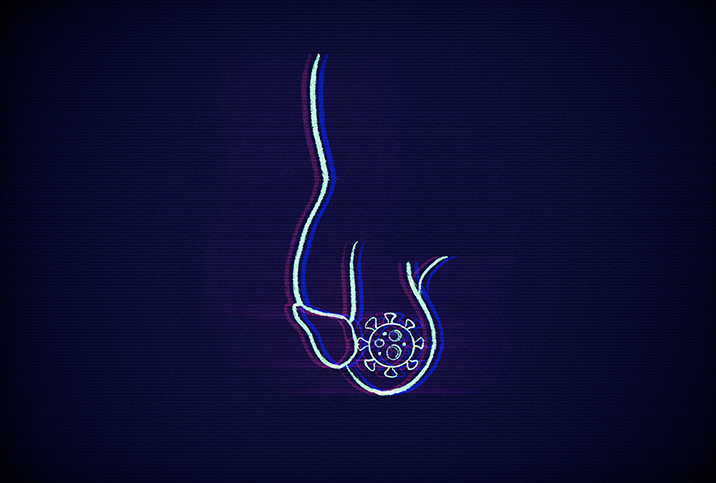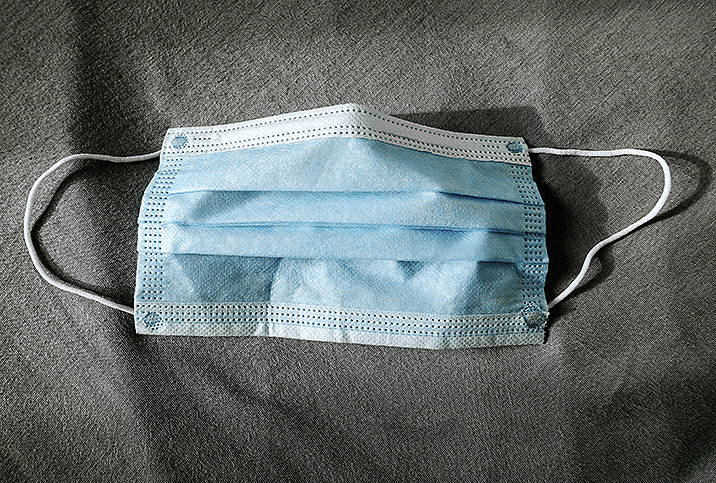What the Pandemic Did to our Sex Lives

More than 40 percent of Americans reported having less sex during the COVID-19 pandemic, according to new research from the Kinsey Institute at the University of Indiana. The study consisted of an online survey of 1,559 adults. Participants were asked about the impact of the pandemic on their sex lives, and almost half (43.5 percent) reported a decline in sex frequency.
However, the study also found a link between the pandemic and more sexual diversity. One in five people (20.3 percent) said they brought new activities into their sexual routines. Some of the common additions were trying new sex positions, sharing fantasies, sexting and sending nude pictures. Some other factors were linked to trying new things, including living alone, being younger and feeling lonely or stressed. Interestingly, those who made new additions were three times more likely to report an improved sex life, the study found. The participants who did not have a live-in partner were more apt to try new activities—most likely, researchers concluded, because their circumstances allowed more creativity in pursuing sex for leisure.
During the early stages of the pandemic in 2020, the lockdowns created a strong sense of uncertainty and fear. Many people suffered from anxiety and financial insecurity due to job loss. Stress from these factors, as well as complications that come about from spending too much time with someone indoors, led to a significant decline in the sex lives of many partnered people. Psychologists note that months of being together all the time can breed contempt in some couples.
Rhonda Balzarini, a psychologist at Texas State University, found in her research that at the start of the pandemic, many couples saw a spike in their sexual desire. However, as resources become increasingly scarce and depression and frustration set in, people became more stressed, and their sex drive declined. In a study Balzarini conducted of adults in over 50 different countries, she found that at the onset of the pandemic, worries over money were actually associated with increased sexual desire between partners. But, over time, the subjects in the study reported more stressors related to COVID-19, and they experienced a decrease in desire as a result.
The key takeaway from Balzarini's study is the link between stress and depression and sex drive. Stressors may not have been causing depression at first. However, when the stressors went on for weeks and months, people grew tired and depressed. Stress correlates with depression, and depression has a negative effect on libido, according to Balzarini.
A study of 459 people in China found that approximately 25 percent experienced less sexual desire related to the pandemic at the height of lockdown in March 2020. About 37 percent reported they were having sex less often, and 32 percent of males and 39 percent of females said they were less satisfied with their sex life.
While some predicted that the pandemic would lead to a baby boom, census data has indicated that the birth rate in the United States continues to decrease. According to the Centers for Disease Control and Prevention (CDC), the birth rate declined by 4 percent in 2020. This marks the sixth year in a row the birth rate has fallen, and it's the lowest point since official records started being kept more than a century ago.
Researchers say that from a biological perspective, the pandemic signals to most that this is not a safe or stable time to reproduce. The stress, anxiety and depression associated with the pandemic led to a reduced sex drive for many.
These studies and statistics are a reminder of the impact a public crisis can have on sexuality, but it's important to keep in mind that the pandemic has not negatively affected everyone's sex life. Some have carried on with happy and healthy sex lives. Remember that things can and will get better for most people.


















